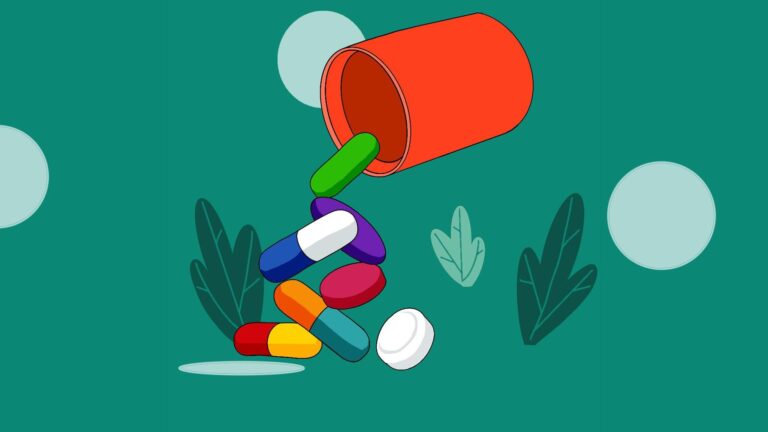
Vaccinations
What are vaccinations?
Vaccinations are an important form of primary prevention. That means they can protect people from getting sick. Vaccinations have allowed us to control diseases that once threatened many lives, such as: measles, polio, tetanus, whooping cough. The immune system protects us against pathogens, which are microbes that cause infection. Vaccination, also known as immunization, teaches the body to recognize new diseases by stimulating the body to make antigens for pathogens, priming the immune system to remember them. This allows for a faster response to the actual disease in the future, should you be exposed.
What are the benefits of vaccination?
When it comes to vaccination, these benefits are important to consider:
- Vaccines help prevent dangerous diseases that have killed and can sicken or kill many people.
- Vaccines protect people around you, especially people who are not well enough to be vaccinated. This occurs through herd immunity. Widespread vaccinations make it less likely that a susceptible person will come into contact with someone who has a particular disease.
- Some vaccines, such as the human papillomavirus (HPV) vaccine and hepatitis B vaccine, can prevent infections that can cause cancer.
- Sometimes, vaccination can eliminate a disease entirely, such as smallpox. Additionally, polio has been almost been eradicated. According to the World Health Organization (WHO)Trusted Source, wild poliovirus only impacted two countries in 2022 – Afghanistan and Pakistan.
How does vaccination work?
Vaccination involves introducing small quantities of dead or inactive forms of a pathogen into the body to stimulate the white blood cells to produce antibodies. If the same pathogen re-enters the body the white blood cells respond quickly to produce the correct antibodies, preventing infection. If a vaccinated individual is infected with the pathogen, they can destroy it before they become infectious.
Consequently, vaccines reduce the likelihood that an infected individual will spread the pathogen they have been vaccinated against to others. If a large number of the population are vaccinated, it is unlikely that an unvaccinated individual will become infected with the pathogen. This is the principle behind the idea of herd immunity.
What is the importance of vaccination for children?
Vaccines are very important for infants. But not all vaccines are given immediately after birth. Each vaccine is given on a timeline, and some require multiple doses. Vaccinations protect your child from deadly diseases, such as polio, tetanus, and diphtheria, and they also keep other children safe by eliminating or greatly decreasing dangerous diseases that used to spread from child to child. The essential vaccines include the OPV and IPV for poliovirus, Bacille Calmette-Guérin vaccine at birth for tuberculosis; rotavirus, yellow fever vaccine, measles and rubella vaccine and more recently the malaria vaccine.
These diseases are especially dangerous in children because the immune system of children is not strong enough to fight off these deadly infections alone. Vaccines help by given the immune system to fight off these infections which are known to spread quickly and cause death and disability. In Ghana, the Ghana health Service provides a vaccination schedule for every child that covers the most essential vaccines at no cost.
What is the importance of vaccination for adults?
Vaccinations are not limited to children alone. Adults may need to support their immune system for a number of reasons. These include:
- Taking vaccines you missed as a child
- Taking vaccine boosters for vaccines you took as a child
- Taking vaccines for travel to new places with peculiar diseases (BCG vaccine for TB)
- Taking vaccines for an outbreak (flu vaccine; covid vaccine)
- Taking vaccines because of occupational risk (rabies vaccines for veterinary officers and forest rangers; hepatitis b vaccine for clinical workers)
- Taking vaccines for lifestyle behaviours (hepatitis b vaccine for sex workers, HPV vaccines for sexually active adolescents or sex workers)
- Taking vaccines following surgery (structured vaccine schedules after splenectomy or partial liver surgery)
- Taking vaccines as protection as a severely immunocompromised individual (people living with HIV, uncontrolled diabetes)
What are some myths about vaccination?
Vaccination causes autism in children
Research has not linked vaccination to autism in children.
Vaccination does not always offer immunity. This is true. While a few vaccines have been shown to not offer immunity against a disease, research shows that the severity of infection is less in vaccinated individuals.
How safe are vaccinations?
Vaccines are rigorously tested and go through many rounds of study and research before use on the general public. It is however possible o experience side effects after administration. These include pain, redness, or swelling at the injection site, fever, with or without chills, fatigue, muscle or joint pain, headache, nausea, vomiting, diarrhea.


